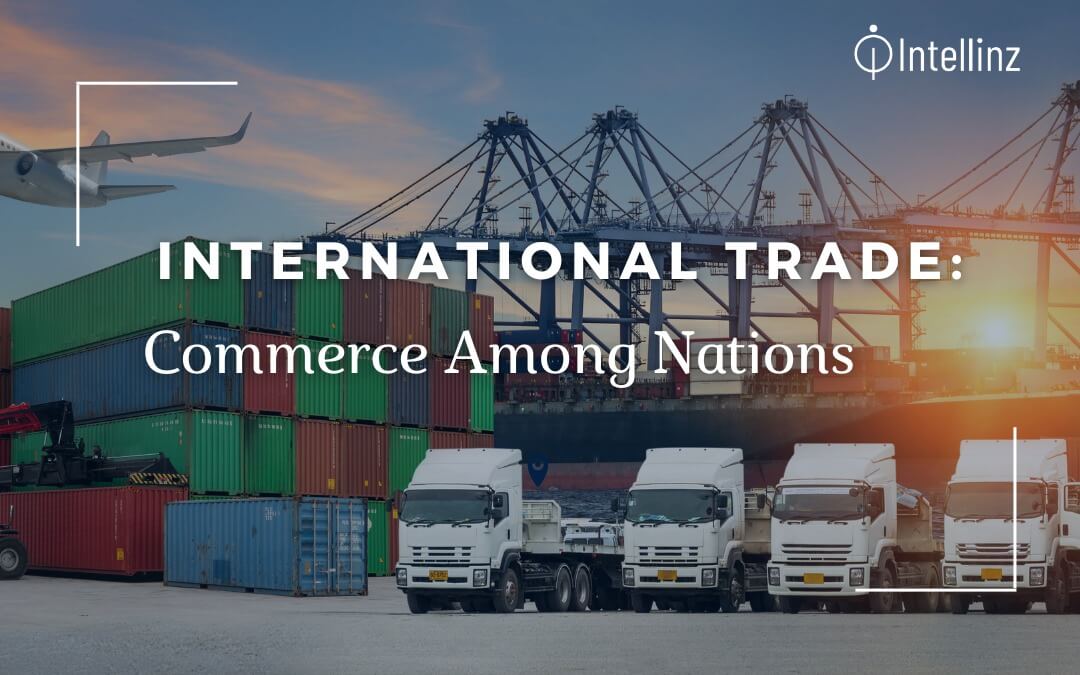Economic exchanges between nations are known as international trade. Some of the commodities that are traded often include raw materials, food, capital goods like machinery, consumer items like televisions and clothing, and raw materials. Countries can get commodities and services that would not otherwise be accessible locally through international trade, expanding their markets in the process.
Imports and Exports
A product that is sold to the global market is called an export, while a product that is bought from the global market is an import. The current account portion of a nation’s balance of payments accounts for imports and exports.
Global commerce makes it possible for wealthier nations to employ their resources—such as labour, technology, or capital—more effectively. Various nations are blessed with various natural resources and assets, including land, labour, capital, and technology.
This makes it possible for some nations to create the same product more rapidly and cheaply. They might therefore offer lower prices for it than those in other nations. A country can trade for an item with another that can manufacture it more effectively if it cannot produce it. International trade has a term for this: specialization.
Comparative Advantage
An economy has a comparative advantage if it can produce a certain good or service at a lower opportunity cost than its trading partners. Competitive advantage is a theory that explains why businesses, nations, or people might gain from trade.
Comparative advantage, as it relates to international trade, refers to the goods that a nation can produce more easily or at a lower cost than other nations. Although though this typically shows the advantages of trade, some modern economists now recognize that relying solely on comparative advantages can lead to resource exploitation and depletion in a nation.
Benefits of International Trade for a Business
The benefits of international trade for a corporation are a wider potential client base, meaning higher earnings and revenues, maybe less rivalry in a foreign market that hasn’t been tapped as yet, diversification, and probable benefits through foreign currency rates.
Common Barriers to International Trade
Government policies that stop foreign trade and defend domestic markets are known as trade barriers. These include standardization, import and export permits, tariffs, quotas, and subsidies.
The Bottom Line
The world economies have become more interconnected via globalization, and international commerce. It provides consumers with a range of options and creates competition so that firms must develop cost-efficient and high-quality items, benefiting these consumers.
Countries gain from trade while concentrating on manufacturing the items in which they have a competitive advantage. International commerce has been proven to be beneficial to economies as a whole, even when some nations restrict it through tariffs and quotas in order to protect home industries.






